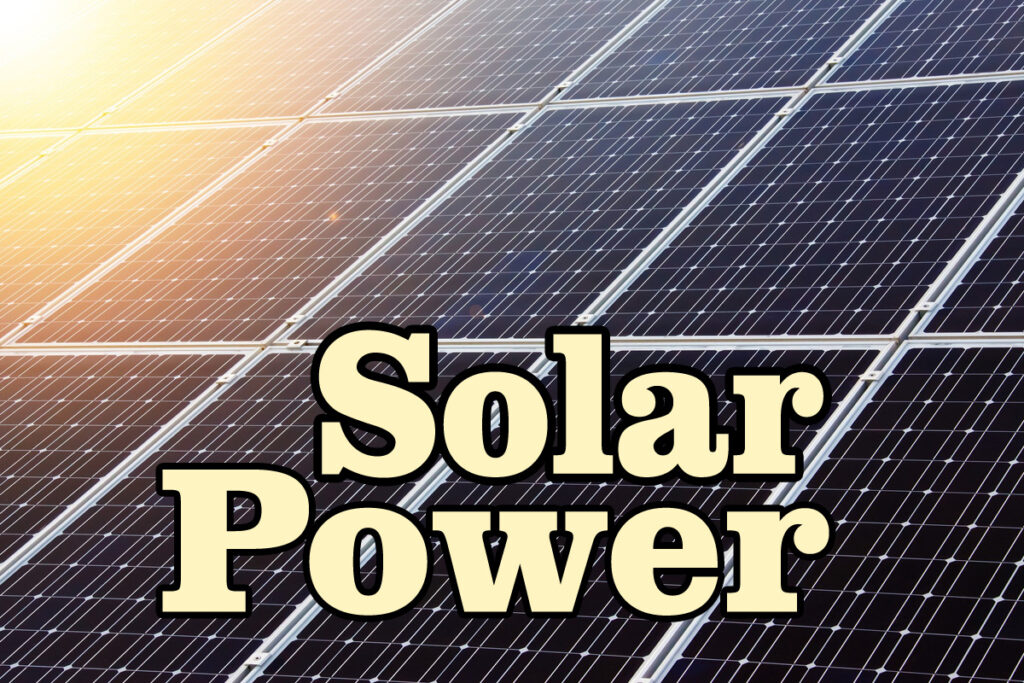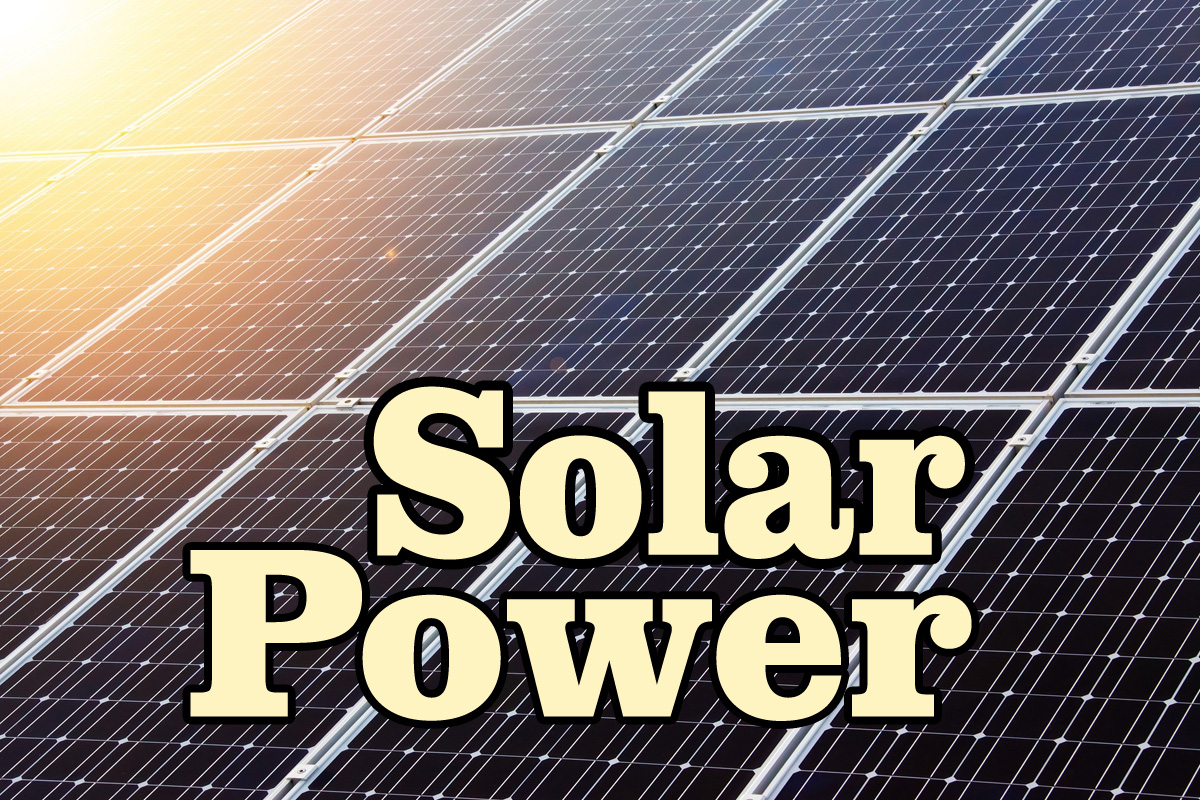Solar Power: Harnessing the Power of the Sun to Illuminate Your Life

The world’s energy needs are increasing rapidly, and traditional sources of energy such as coal, oil, and natural gas are depleting at an alarming rate. With the rising demand for electricity, it’s imperative to explore alternative energy sources that are sustainable, efficient, and eco-friendly. Solar power is one such alternative energy source that has gained significant popularity in recent years. In this blog, we’ll take a closer look at solar power, its benefits, and how it works.
What is Solar Power?
Solar power is a form of renewable energy that harnesses the energy from the sun to produce electricity. The sun is a natural nuclear reactor that releases tiny packets of energy called photons, which travel through space and reach the earth’s atmosphere. Solar panels, which are made up of photovoltaic cells, absorb these photons and convert them into usable electricity.
Benefits of Solar Power
- Renewable and Sustainable: Solar power is a renewable and sustainable source of energy that doesn’t deplete the earth’s natural resources.
- Eco-friendly: Solar power doesn’t emit harmful greenhouse gases or pollutants that contribute to air pollution and climate change.
- Low Maintenance: Solar panels require minimal maintenance and can last for up to 25-30 years with proper care.
- Cost-effective: While the initial investment for installing solar panels may be high, the long-term savings on electricity bills can be significant.
- Energy Independence: Solar power provides energy independence, allowing individuals and communities to generate their own electricity and reduce reliance on traditional energy sources.
How Solar Power Works
Solar power systems consist of solar panels, an inverter, a battery bank (in some cases), and a monitoring system. When sunlight hits the solar panels, it’s absorbed by the photovoltaic cells, which convert the energy into direct current (DC) electricity. The inverter then converts the DC electricity into alternating current (AC) electricity, which is used to power homes and businesses.
In some cases, excess electricity generated by the solar panels can be stored in a battery bank for later use. A monitoring system tracks the electricity generated by the solar panels and the energy consumed by the home or business, allowing individuals to track their energy usage and make adjustments to their consumption habits.
Solar power systems can be installed on rooftops, in fields, or on the ground, depending on the available space and sunlight exposure. The size and number of solar panels required for a system depend on the energy needs of the home or business and the available sunlight.
Conclusion
Solar power is a promising alternative energy source that offers numerous benefits over traditional energy sources. With the rising demand for electricity and the need to reduce carbon emissions, solar power has become an increasingly popular option for homes and businesses. As technology advances and costs continue to decrease, solar power is poised to play a significant role in meeting our energy needs for years to come. So, if you’re looking for a sustainable and cost-effective way to power your home or business, solar power is an excellent option to consider.
Thank you for reading our blog on Solar Power. If you found this information helpful, please share it with your friends and family. Also, don’t forget to leave your comments and feedback in the comment section below.
FAQs
- What is solar power?
Solar power is the conversion of energy from sunlight into electricity, either directly using photovoltaic (PV) cells or indirectly using concentrated solar power. - How does a solar panel work?
A solar panel works by absorbing sunlight and converting it into DC electricity through the photovoltaic (PV) effect. An inverter is then used to convert the DC electricity into AC electricity, which can be used to power homes and businesses. - What are the benefits of solar power?
Solar power has numerous benefits, including reducing greenhouse gas emissions, lowering energy bills, providing energy independence, creating jobs, and improving public health. - Is solar power expensive?
The cost of solar power has decreased significantly over the past few years, making it more affordable for homeowners and businesses. Additionally, there are various incentives and financing options available to help offset the upfront costs. - What is the lifespan of a solar panel?
Most solar panels have a lifespan of around 25-30 years, although some can last even longer with proper maintenance. - How much energy can a solar panel produce?
The amount of energy a solar panel can produce depends on several factors, including its size, efficiency, and the amount of sunlight it receives. On average, a 1-kW solar panel system can produce around 4-5 kWh of electricity per day. - What is net metering?
Net metering is a billing arrangement that allows homeowners and businesses to receive credit for excess solar energy they generate and feed back into the grid. This credit can then be used to offset the energy they consume from the grid when their solar panels are not producing enough electricity. - What happens to solar panels at night or on cloudy days?
Solar panels do not produce electricity at night or when there is not enough sunlight, such as on cloudy days. In these situations, homeowners and businesses can still draw electricity from the grid. - Can solar panels work in cold climates?
Solar panels can still work in cold climates, although their efficiency may decrease slightly in extremely cold temperatures. Additionally, snow can accumulate on the panels and decrease their energy production, although this can be mitigated through proper installation and maintenance. - How can I get started with solar power?
The first step in getting started with solar power is to assess your energy needs and determine if solar is a good fit for your home or business. You can then find a reputable solar installer in your area and work with them to design and install a solar panel system. Additionally, there are various incentives and financing options available to help make the switch to solar more affordable.
Benefits of Solar Power
- Renewable energy source: Solar power is a sustainable and renewable source of energy that does not emit greenhouse gases or pollutants.
- Reduces greenhouse gas emissions: By using solar power, we can reduce our dependence on fossil fuels and lower our carbon footprint, helping to combat climate change.
- Lowers energy bills: Solar panels can help homeowners and businesses save money on their electricity bills by generating their own clean energy.
- Provides energy independence: Solar power can provide energy independence, allowing homes and businesses to generate their own power and reduce their reliance on the grid.
- Creates jobs: The solar industry has created jobs in manufacturing, installation, and maintenance, helping to boost local economies.
- Improves public health: Solar power helps to reduce air pollution and improve public health by reducing the amount of harmful emissions from traditional power sources.
- Increases home value: Homes with solar panels tend to have higher resale values, as they offer lower energy bills and a sustainable energy source.
- Requires minimal maintenance: Solar panels have few moving parts and require little maintenance, making them a cost-effective investment over the long term.
- Offers long-term cost savings: Solar power offers long-term cost savings, as the initial investment in solar panels can be recouped over time through energy savings.
- Provides backup power during outages: With the addition of batteries, solar power can provide backup power during outages, ensuring that homes and businesses have a reliable source of electricity even during emergencies.
Related Searches
